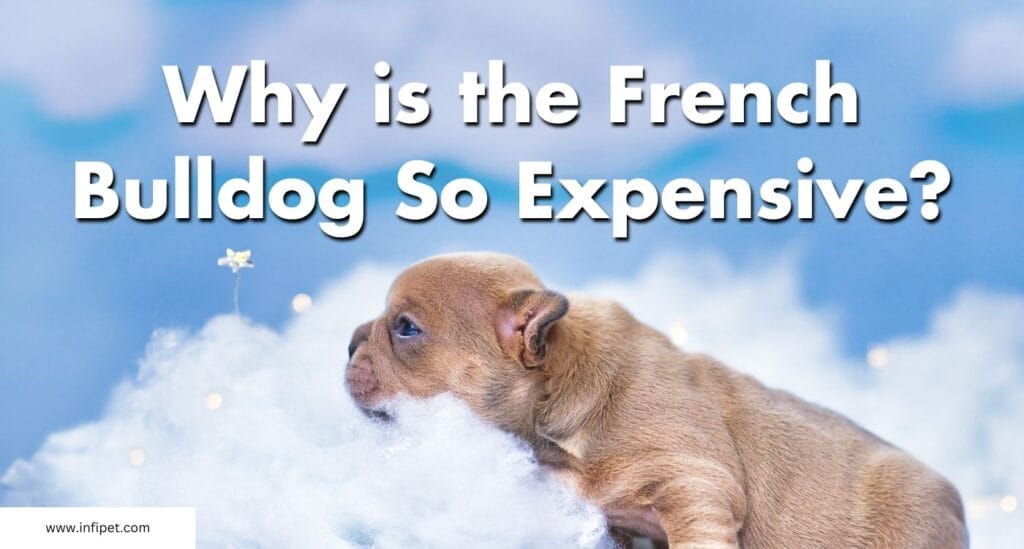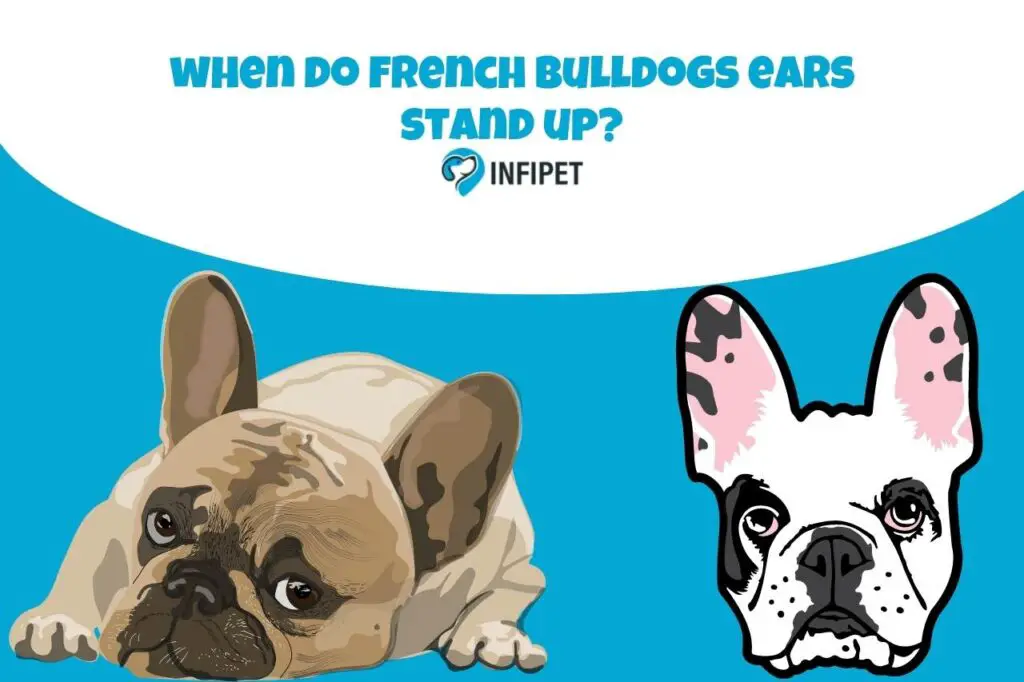Seeing a dog drooling might not be everyone’s cup of tea and it’s the same with French Bulldog owners. So, do French Bulldogs drool? French Bulldogs’ distinctive skull shape results in them being prone to drooling. Frenchies tend to drool when they are hungry or in tension or it can also be due to some illnesses. While you can’t truly stop your French Bulldog from drooling, you can make him more at ease. Learn further about your lovely Frenchie in this article, including the explanations as to why it drools. Let’s get going.
Do French Bulldogs Drool?
Frenchies have shorter and wider snouts covering the lips are many folds on their snouts. In addition, a condition known as “prognathism of the jaw” occurs when the lower jaw protrudes ahead of the upper jaw. Hence there can be many reasons why they tend to drool.
Rule aids them in eating and digestion when they are eating, aside from their facial structure. French puppies drool during the time of their teething. Puppies salivate more than adults, given that they want to chew, but this will eventually stop.
Drooling occurs in French bulldogs for a variety of causes. Rule, in addition to their facial features, assists them in eating and digestion. Your French bulldog puppy may be teething whenever they seem to drool more than usual. Puppies drool more because they enjoy chewing, but this over-salivation will eventually stop.
Why Do Some French Bulldogs Drool More Than Others?
If your French Bulldog drools excessively, it might indicate a sign of exceptional stress. If their normal schedule has changed, there are emotional difficulties in the family, a new family member, a newborn, or a pet recently arrived, or if any of these circumstances have happened.
Drooling will return to normal once the psychological issue is resolved and your Frenchie feels secure. Excessive drooling can also be caused by excitement and positive stress. They want a piece of their favorite cuisine or whatever else the family eats when they see it. The same happens when your dog is anticipating a new toy, an exciting program, a loved guest they are pleased to see again, or a new toy. They are going to stop drooling naturally because of this glad explanation.
Is Drooling A Common Characteristic Of French Bulldogs?
A frequent trait of French Bulldogs is drooling. It occurs frequently in every one of them and is entirely natural. It’s more likely brought on by tension, heat, hunger, or excitement. Compared with different dog breeds, French Bulldogs tend to drool less. However, suppose your French Bulldog suddenly starts drooling excessively, and you cannot comprehend it due to meals, enthusiasm, heat, or fear. Get assistance from your vet if needed.

Why Do French Bulldogs Drool?
When dogs become excited, they look like they slobber. In their enthusiasm, they drool. It resembles how humans salivate when we smell some delectable dishes! They may drool when a dog sees something exciting, such as their friend strolling down the street while gazing out the window.
One of the more frequent causes of excessive drooling in French Bulldogs is anxiety, an overwhelming feeling of fear, nervousness, or discomfort. In response to emotional triggers, dogs drool. French Bulldogs are especially susceptible to heatstroke in hotter areas.
How Can You Manage And Minimize Drooling In French Bulldogs?
Dental problems can lead to excessive drooling in French Bulldogs. Regularly brush your French Bulldog’s teeth with a dog-friendly toothbrush and toothpaste that your veterinarian suggests. Always ensure that your French Bulldog is properly hydrated. Throughout the day, offering fresh water might help reduce excessive drooling due to dehydration.
Be aware of any particular factors that may make your French Bulldog drool more, such as particular food items or exciting situations. Try to restrict your exposure to these triggers as much as possible to lessen excessive drooling. Make sure your French Bulldog’s diet is balanced and suitable for their needs by evaluating it.
Certain meal kinds or substances can occasionally result in increased salivation. Make regular appointments with the vet for regular checkups and dental inspections. Drooling can be controlled since prospective dental or oral health problems can be treated immediately. French Bulldogs’ brachycephalic (short-faced) shape makes them more likely to drool in hot conditions. During hot weather, keep your French Bulldog in a cool, well-ventilated space to prevent excessive drooling from the heat.
How Does Age Affect Drooling In French Bulldogs?
The propensity of French Bulldogs to drool may change with age; like most puppies, French Bulldog puppies might drool far more than adult dogs do and may also have less control over their saliva. The reason for this is that both their coordination and mouth muscles are still growing. Their propensity for drooling can lessen over time as they develop and age.
French Bulldogs may develop dental problems such as tartar buildup, gum disease, or tooth decay as they age. Increased salivation and drooling may result from several disorders. Drooling brought on by oral health problems can be minimized with routine dental care, including expert cleanings.
Changes caused by age in dogs’ susceptibility to certain illnesses can impair saliva production and management. For example, excessive drooling may be a symptom associated with certain oral diseases, malignancies, or neurological conditions. To monitor your French Bulldog’s health and address any aging-related issues, routine veterinary exams are crucial.
Medication may be needed to treat age-related illnesses in older French Bulldogs. Drooling habits may change due to drugs that impact saliva production or dry mouth. Consult your veterinarian if you observe any noticeable changes in drooling after starting a medication.
Are There Any Specific Situations When French Bulldogs Are More Prone To Drooling?
If a French Bulldog feels sick or queasy, it could drool more. It may react to certain infections, digestive problems, or irritated stomachs. Consult a veterinarian for an accurate diagnosis and treatment if your French Bulldog is drooling frequently, if other symptoms are present, or if you have any other reason to believe your dog is ill.
Dental problems in French Bulldogs, including gum disease, tooth decay, or oral infections, can increase salivation and drooling. Regular dental cleanings and checkups can aid in preventing or addressing these issues. The more worried or anxious they are, the more French Bulldogs may slobber. This can occur during veterinary appointments, auto trips, thunderstorms, or pyrotechnics displays.
If your French Bulldog drools excessively when under stress, it’s crucial to give them a quiet and secure environment and consider ways to lower their stress levels. Your Frenchie may drool more often than usual if they have a condition (such as renal or liver disease). Consult a veterinarian immediately if you think your Frenchie’s health may be compromised.
Drooling, which happens suddenly and in excess, can be brought on by ingesting poisons and potentially hazardous plants. Immediately take your Frenchie to the closest emergency veterinary hospital whenever you think they have accidentally ingested something harmful. These chemicals have the power to kill you and seriously harm your organs! Cuts, scratches, and bites can bring on excessive drooling or any other damage to your dog’s mouth.
Additionally, problems with swallowing can make your dog drool more frequently than usual.
It’s worth your time to watch this video,
VIDEO CREDITS: Woodland Frenchies YouTube Channel
Recommended Similar Content for You



